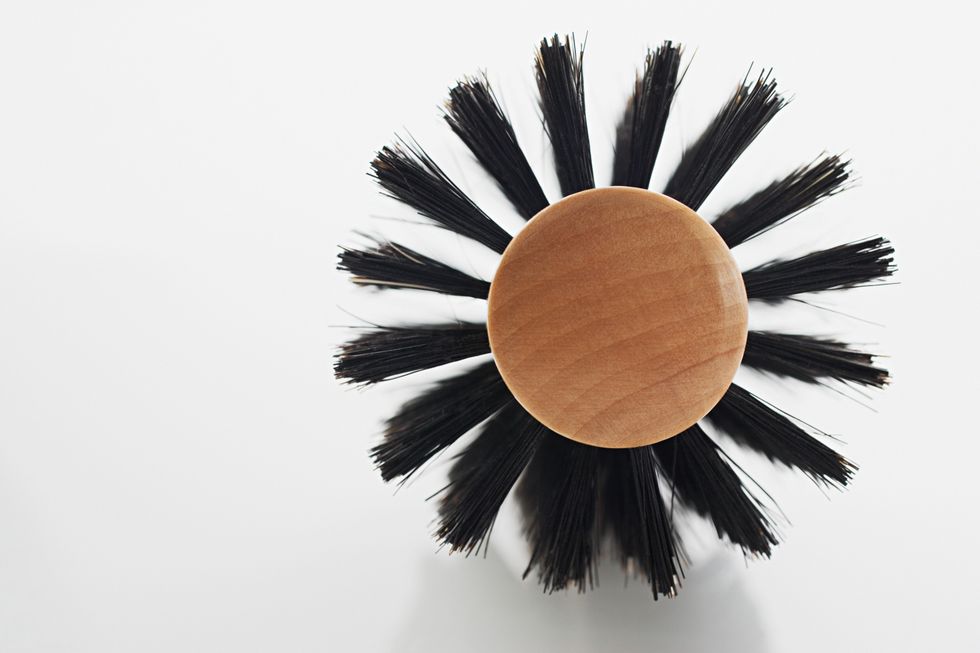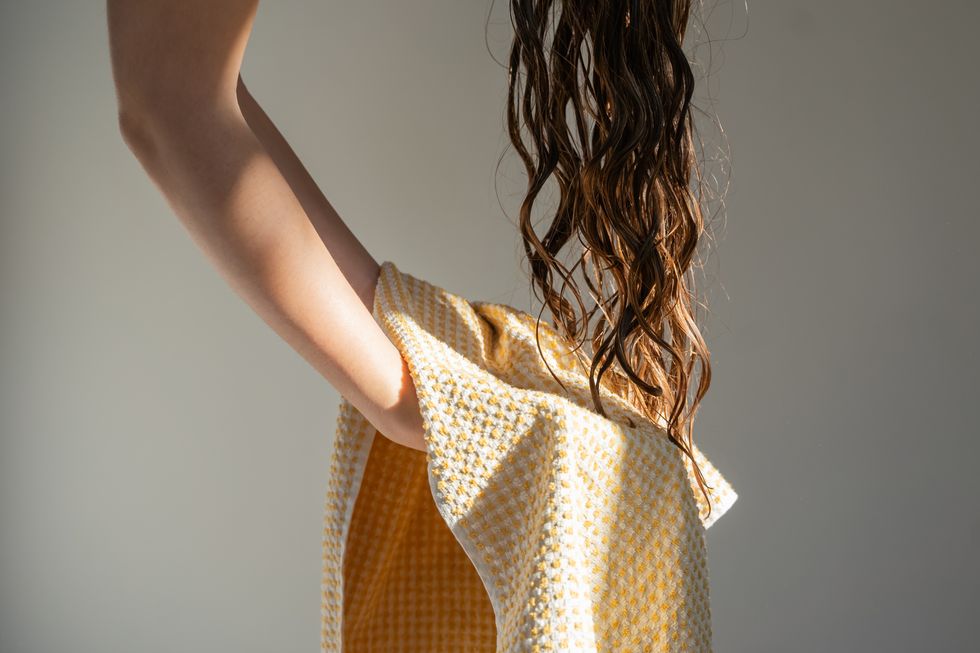From best foods to fine hairbrushes: Experts list alternative solutions for thicker, shinier and longer hair after 50
Biotin-rich foods like eggs support better hair growth
The best diet, shower routine and lifestyle habits can make a big difference to the quality of hair after menopause, experts have claimed
Don't Miss
Most Read
Trending on GB News
Changes in hair thickness can occur for a host of reasons, but as the body ages, hormonal fluctuations are the main culprit.
Research suggests women are worse affected by hair loss than men as many go on to experience social anxiety.
During menopause, hair loss is primarily attributed to a shift in hormones, notably the reduction in oestrogen and progesterone.
These hormones are directly linked with several biological processes in the body, including hair follicle health, influencing the growth cycles of hair and the diameter of hair strands.

Rounded brushes are better for thinning hair
GETTY
As hormone levels become increasingly compromised, many women experience androgenic alopecia.
In other words, the hair follicles shrink and shorten the hair growth phase. The resting phase, on the other hand, extends.
The result is thinning hair that often appears more brittle and lacks volume. It may also grey prematurely due to reduced melanin production.
Diet: The best foods for thinning hair
To combat hair thinning, experts recommend a multi-faceted dietary approach, noting that antioxidants play a vital part in hair health.
These compounds - present in foods like berries and vegetables - protect the hair follicles against environmental stressors, explains Lauran Geige, an aesthetician with expertise in medical aesthetics and cosmetic dermatology.
Fat is also imperative for hair health, particularly omega-3 fatty acids found in walnuts, flaxseeds and fish.
Not only do these foods improve the quality of the hair shaft, but they can also enhance scalp health and promote lustre and elasticity in the hair.
Incorporating biotin-rich foods like eggs and avocados supports the infrastructure of the hair strand which is crucial when trying to promote better growth.
Maintaining adequate hydration is equally important as it can impact the life cycle of hair cells and potentially delay the onset of hair thinning.
Preventing menopausal hair loss
Women experience a drastic decline in hormones when they enter menopause, but there are many things they can do in their 20s and 30s to mitigate this.
“You build most of your bone density in your 20s and 30s, often reaching a peak bone density around 30 years of age,” Dr Aarthi Sinha told GB News.
“Be proactive and build bone density using the right exercise and dietary approach to reduce the amount of bone density loss in your 40s and 50s and after.
“Weight-bearing exercise is beneficial for bone density and a Mediterranean diet will also help,” added the expert.
The best brushes for thinning hair
Brushes come in all shapes and sizes, and though they all serve the same purpose, they are not always suitable for every type of hair.
“The quality of the brush is very important when it comes to your hair’s health,” said Victoria Panting, technical education and Paul Mitchell.
LATEST DEVELOPMENTS

Natural styling will enhance hair quality
GETTY“Using the best brushes with inbuild technology to smooth the hair, close the cuticle, etc, will always be beneficial. Remember to replace oil and damaged brushes.
“There have been multiple studies to suggest brushing the hair can stimulate hair growth so looking at brushes that are designed to stimulate the scalp will help.”
If you’re looking for volume, a soft-bristled hair brush may promote healthier hair growth in people with more fragile hair types.
Using these brushes daily and massing the scalp to promote better blood circulation will likely pave the way to longer hair.
Olivia Jones, hair stylist at macleodbradley, explained: “Fine thinning hair would benefit the most from boar bristles which are soft and gentle.
“A round brush is amazing for adding lift and volume at the root for bounce. For anyone with thicker, coarse hair, the best brush to use would be the OG paddle brush - the sparser bristles get through the denser strands and untangle with ease.”
How often should you wash your hair?
According to Jones washing hair less frequently improves shine by keeping the natural oils intact.
She continued: “The thickness of your hair, however, depends on the products and the routine that you use, and the general genetics of your hair.
“Washing the hair less often can actually make the scalp healthier and prevent itching. Less washing is usually recommended for anyone with thinning hair to slow does the process.”
The general consensus is that one to two weekly washes are best. Avoid using too much conditioner on the scalp to prevent any build-up, and rinse the hair in cold water for extra shine. Women should also be wary of over-styling as this can damage the hair. Embracing your natural hair can be a better option.








